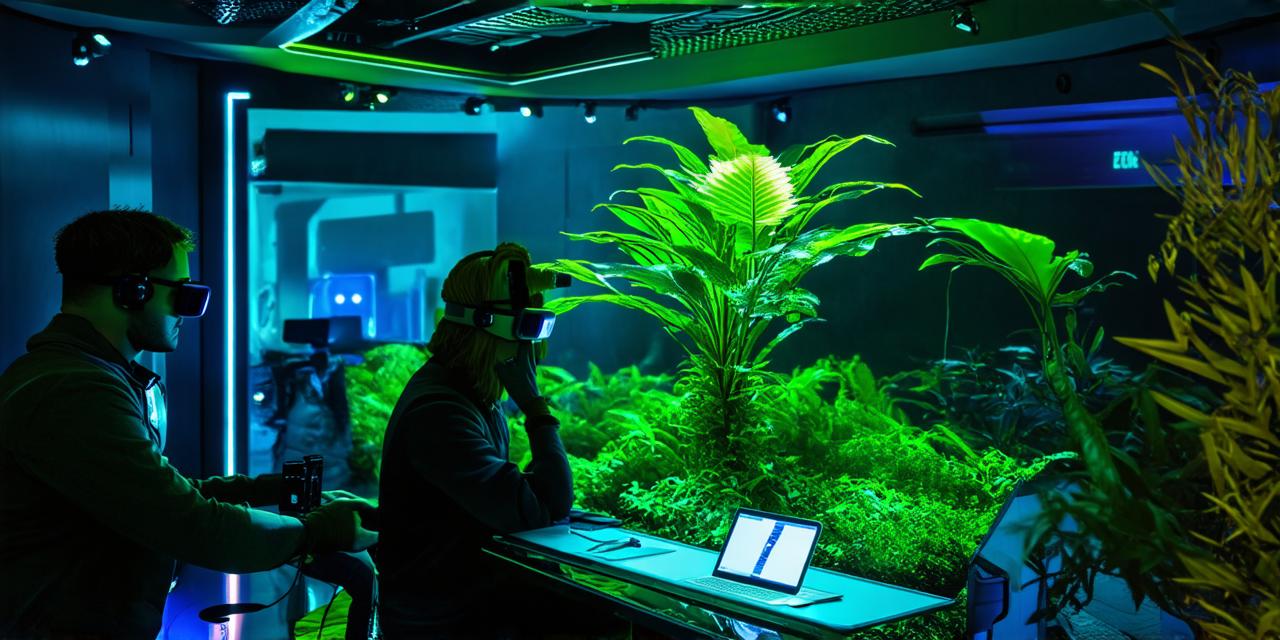
When will full dive virtual reality be actualized?
Introduction:
Virtual reality (VR) is an exciting technology that has been rapidly evolving over the past few years. Full-dive VR, also known as immersive VR, is a type of VR experience that completely immerses the user in a digital environment. While full-dive VR is still in its early stages, many experts believe that it will be actualized in the near future. In this article, we will explore some of the advancements in VR technology and examine the factors that are driving the development of full-dive VR.
Advancements in VR Technology:
One of the key factors driving the development of full-dive VR is the rapid advancements in VR technology. In recent years, we have seen significant improvements in display resolution, tracking accuracy, and motion sickness prevention. These advancements have made VR experiences more immersive and enjoyable for users.
One example of this is the Oculus Quest 2, which was released in October 2020. The Quest 2 features a high-resolution display, advanced tracking technology, and a comfortable design. It also includes hand controllers that allow users to interact with virtual objects in a more natural way.

Another example is the HTC Vive Pro Eye, which was released in March 2019. The Vive Pro Eye features a high-resolution display, advanced eye tracking technology, and a comfortable design. It also includes hand controllers that allow users to interact with virtual objects in a more natural way.
Factors Driving the Development of Full-Dive VR:
There are several factors driving the development of full-dive VR. One of the most significant is the growing demand for immersive experiences. With the rise of social media and streaming services, people are looking for new and exciting ways to connect with others and experience content.
Another factor is the advancements in artificial intelligence (AI) and machine learning (ML). These technologies are being used to create more realistic and interactive virtual environments. For example, AI can be used to generate procedural content, which allows users to explore a virtually infinite number of possible environments.
Finally, the cost of VR hardware is decreasing rapidly. As the technology becomes more accessible, we can expect to see more people using it for various purposes, including gaming, education, and training.
Case Studies:
There are several case studies that demonstrate the potential of full-dive VR. One example is the use of VR in medical training. In a study published in the Journal of Medical Internet Research, researchers found that VR simulations were as effective as live surgeries in teaching medical students surgical procedures.
Another example is the use of VR in gaming. In 2019, Oculus released Beat Saber, a rhythm game that uses VR controllers to create an immersive gaming experience. The game has been incredibly popular and has helped to drive the popularity of VR gaming.
Expert Opinions:
Many experts in the VR industry believe that full-dive VR will be actualized in the near future. For example, in an interview with TechCrunch, Oculus CEO Mark Zuckerberg stated that he believes that VR will become a major part of our daily lives within the next decade.
Similarly, in an interview with CNBC, HTC Vive CEO Peter Chuang stated that he believes that full-dive VR will be actualized within the next few years. He cited the rapid advancements in VR technology and the growing demand for immersive experiences as key drivers of this development.


